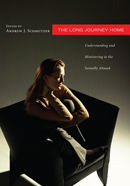A Theology of Sexuality and its Abuse: Creation, Evil, and the Relational Ecosystem, Part 1
To aggressively expose someone is to shame them (cf. Matt 27:28, 31). “Shame” implies physical exploitation and humiliation—“to be ashamed before one another,”106 so the absence of shame for the garden couple is simply unimaginable for all who have grown up outside Eden (cf. Deut 28:48; Isah 58:7).107 For the sexually abused and raped, however, shame, exploitation, and humiliation are not some sectarian custom or ancient Bible story—it is their story! It is the couple’s rebellion that will dismantle their naked vulnerability (3:7, 10). First, we hear a significant celebration.
Sexuality in Celebration: Genesis 2:23
Heralding a perfect complement, speech and celebration precede sex and preclude self-absorption: “This one finally, is bone of my bone, flesh of my flesh”—“They are one! That is, in covenant (2:24). The garden exists as a context for the human community.”108 Using “bone and flesh” means that the other person “is as close as one’s own body.”109 This bonding, including sexually, means that what affects one, affects the other. Hurting one will hurt both (Eph 5:28–29).110 Through the instrument and affirmation of speech, the image of God (1:26) is, to some degree, now illustrated in the man’s poetic celebration (2:23).111
“This one [zō’t] is finally bone of [min] my bone, and flesh of [min] my flesh; this one [zō’t] shall be called ‘woman’ [’iššâ], for from man [min ’iš] was taken this one [zō’t].” (AT)
The man’s words function as a testimony, an exuberant announcement in the very presence of his attending Creator. With punning poetry, the man’s declaration sets human sexuality apart. The first time we hear the man speak is when he meets the woman who is truly another “suitable for him.”112 Sharing and receiving someone’s voice forms a special connection (Song 2:14; John 10:27). The man “is saying yes to God in recognition of his own sexual nature and welcoming woman as the equal counterpart to his sexuality.”113 In short, the man illustrates how “words are rooted in reality because speech arises out of experience.”114 What the reader hears is the sacrament of surprise, “this one”—definiteness so vital to healthy sexuality in marriage. Genesis 2:23 is a benchmark of relational celebration—the “man” (’iš) for the visible presence of the “woman” (’iššâ).115
In the Old Testament, the face (pānim) could be the most important part of a person’s body, face being a relational concept referring to the entire person.116 So one hears the “lover” declare in the Song of Songs, “Show me your face, let me hear your voice” (2:14). Intimacy has been stirred in these gardens (cf. 4:14; 6:2). Here is the “I–Thou–We” dynamic, initiated in divine declaration (1:26) and now matched in human celebration (2:23). Uniqueness of personhood (from the narrator, 1:27) has flowered in unity of relationship (from the man, 2:23). This unity was creation’s design, the paring of one “male and female” that Jesus refers to as the original plan (Mark 10:6–9). We now take a closer look at sin and its consequences.
PR
In Part 2 of “A Theology of Sexuality and its Abuse”
The Relational Ecosystem: Sexuality Amid Consequences
The New Order for the Redeemed
See Also in this Issue: Andrew Schmutzer answers questions about resistance to healing, relational ecosystems, and preparing church leaders to deal with effects of sexual abuse in their congregations.
Footnotes and select glossary appear in the full digital issue of Pneuma Review Summer 2013 and in the book from which this excerpt is derived.

This chapter is from Andrew J. Schmutzer, ed., The Long Journey Home: Understanding and Ministering to the Sexually Abused (Eugene, OR: Resource Publications, 2011). Used by permission of Wipf and Stock Publishers. www.wipfandstock.com
Some Scripture quotations are direct translations by the authors and contributors. All scripture quotations, unless otherwise indicated, are taken from the Holy Bible, New International Version®, NIV®. Copyright ©1973, 1978, 1984 by Biblica, Inc.™ Used by permission of Zondervan. All rights reserved worldwide.
Category: Ministry, Pneuma Review, Summer 2013


